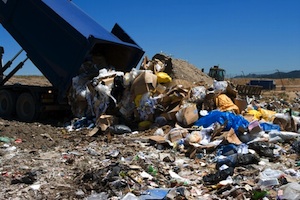Last updated April 12, 2019
 The increasing demand for technology has made electronic and electrical waste one of the quickest growing waste streams on the entire planet, even in spite of the fact that almost all of its components could be recycled and used again. South Africans are now being urged by waste management services to recycle their technological items as increasing piles of electronic trash are beginning to overwhelm landfills.
The increasing demand for technology has made electronic and electrical waste one of the quickest growing waste streams on the entire planet, even in spite of the fact that almost all of its components could be recycled and used again. South Africans are now being urged by waste management services to recycle their technological items as increasing piles of electronic trash are beginning to overwhelm landfills.
Around 1.4 million tons of waste is collected just from the city of Johannesburg each year, with ten percent of that figure being electronic waste. The improper disposal of technological items poses risks to both the natural environment and to the health of human beings, with hazardous materials such as the likes of mercury and lead leaching into nearby areas and contaminating their soil and water supplies.
Such items being sent to landfills instead of recycled also has the effect of increasing carbon emissions because such items have to be made from scratch by using virgin raw materials. Sims Recycling says that for every ton of computers that are recycled, CO2 emissions are thus reduced by almost four tons, while just the one ton of high-grade electronic equipment can yield between 100 grams and 10 kilograms of gold.
Electronic waste accounts for as much as up to 70 percent of all the waste that is sent to landfills, which includes the likes of old cell phones, with the great majority of people unaware that most of the waste could be recycled and reused for new products.